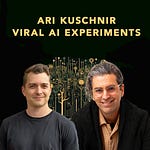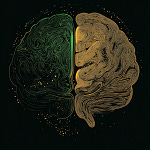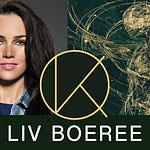In the 1960’s, communications theorist Marshall McLuhan famously wrote ‘the medium is the message’. Thousands of years before he lived, we were already expressing this idea through our creation myths; myths in which the universe is spoken into being, or danced into form. At a deep level, we’ve always known that how our world is created tells us about what has been created.
Today, advanced AI is forcing us to ask what it means when the medium is disconnected from the embodied world; held in distant servers and immortal algorithms. It’s a question that one of the godfathers of AI, Geoffrey Hinton, may be touching on in his research into ‘mortal computing’, in which AI is bound to hardware instead of software. This would mean it learns as a unique individual (with all the energy efficiencies that entails) and dies as one once its hardware is destroyed.
This modern research revives an ancient question. If consciousness isn’t expressed through the medium of a body, is it truly alive? This strange overlap of predictive AI, archaic myth, and philosophy weaves a thread that has been fascinating me more every day.
It’s part of what drew me to the work of author and poet Sophie Strand, who is my guest this week in one of the most far-ranging and exciting conversations I’ve had all year. We explore these questions and many more, including the difference between written and oral communication, and the role of beauty and poetry in helping us move through the metacrisis.
Strand’s work focuses on the intersection of spirituality, storytelling, and ecology. Her first book of essays The Flowering Wand: Rewilding the Sacred Masculine was published in 2022, and her latest book, The Madonna Secret, is an eco-feminist historical fiction reimagining of the gospels and that was published earlier this year. She also writes an excellent Substack.
Sophie has a real gift with words and a uniquely lyrical approach to history and contemporary culture. She's also one of the teachers on my upcoming course New Ways of Knowing, where she'll be sharing how myth and poetry can be give us new ways to navigate complexity and tap into a deeper appreciation for the world.
The course begins on December 13, and 80% of the live tickets are now sold out.
This is the second in a three part audio series with teachers on the course, which will culminate next week in a conversation with the newest faculty member, Peter Limberg, who many of you will know as the creator of The Stoa and writer of the brilliant Less Foolish Substack.
After this series, I’ll be returning to my regular features and articles, as well as publishing podcasts like this, and hosting guest writers from early next year.
You can find these podcasts on Apple Podcasts as well as listening to them on Substack, and from next year paying subscribers will also be receiving exclusive audio content.












